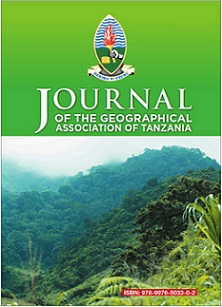Power Struggles of Conservation Partnerships in Tanzania ' s Wildlife Management Areas
Abstract
Many African countries have witnessed the emergence of different modalities of wildlife protection since the 1980s that require partnerships between diverse stakeholders. In Tanzania, the protection of wildlife outside coreprotected areas has seen the development of Community Wildlife Management Areas (CWMAs) as an important form of partnership between the government, local communities, private sector, conservation organizations, and development partners. CWMAs are central to many partnership debates about power struggles in conservation and development. This paper builds on the political ecology framework and conservation literature to explore the power struggles that determine who benefit, and who loses in CWMA partnerships. Drawing from data collected in Rufiji district, in Tanzania, the paper shows that a few powerful partners determine access to wildlife by local people, and make most decisions about the use of land, sometimes without villagers ' consent. Rather than promoting local development, conservation partnerships have had unequal social impacts due to continued restrictions on wildlife utilization, and human-wildlife conflicts that include human attacks and loss of lives, thus fostering different kinds of livelihood insecurities. The paper sets these changes within broader economic dynamics, which have seen the rise of new cash crops, which are less vulnerable to wildlife damage. These could alter the economic and political costs and benefits associated with new wildlife partnerships.
Keywords: power struggles, conservation, political ecology, community wildlife management areas, conflicts



